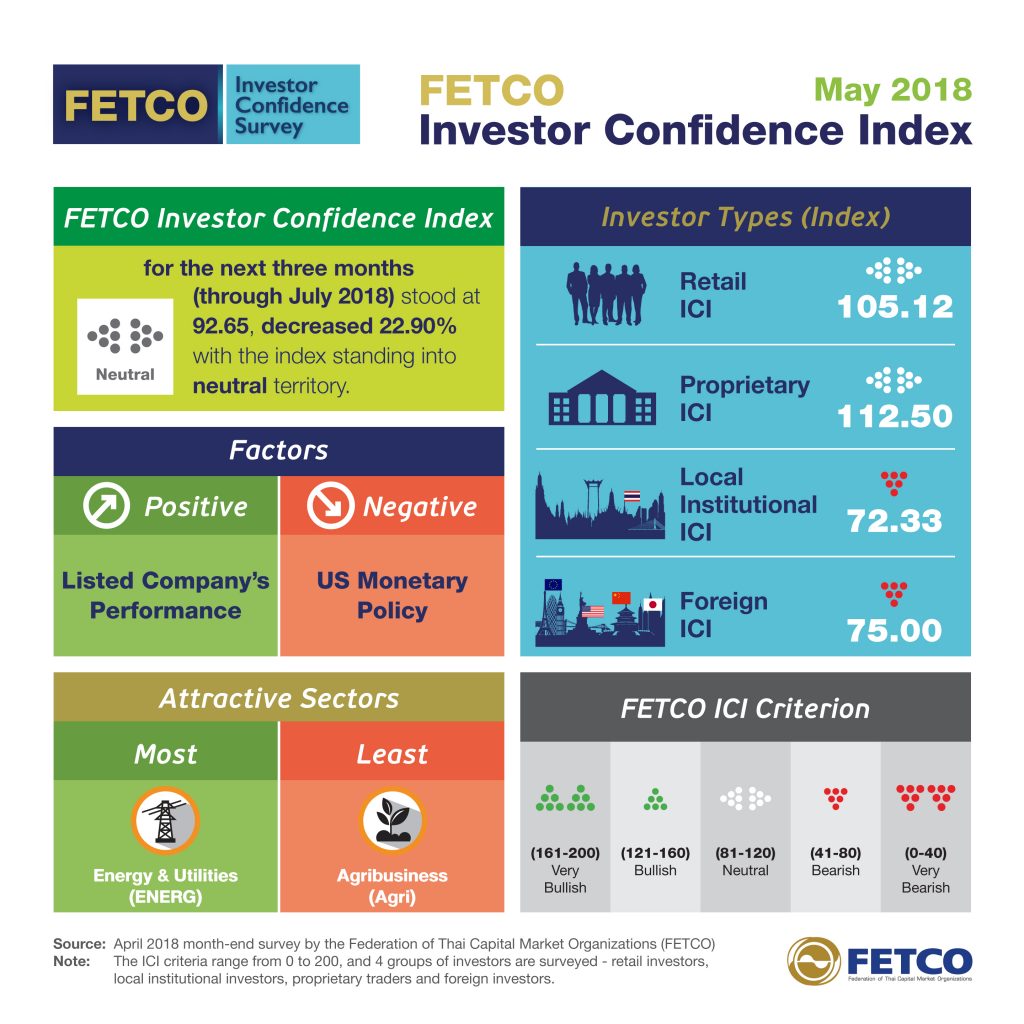
Voravan Tarapoom, Chairman of the Federation of Thai Capital Market Organizations (FETCO), commented on the monthly FETCO Investor Confidence Index (ICI) for May 2018 are summarized below:
- FETCO Investor Confidence Index (ICI) for the next three months (through July 2018) dropped into the neutral range of 80–120, falling 22.90% from 120.17 in the previous month.
- ICIs of both foreign investors and local institutional investors fell from the previous month into the bearish zone.
- Confidence levels among proprietary traders and retail investors fell but remained neutral.
- Investors considered the Energy & Utilities (ENERG) sector most attractive.
- The Agribusiness (AGRI) sector drew the least investor interest.
- The performance of listed companies had the greatest positive impact on the Thai stock market.
- The biggest drag on the Thai stock market was US monetary policy.
“During April, the Stock Exchange of Thailand (SET) Index experienced rather wide swings, with the SET Index ranging from 1724 to 1801 points. The main pressure on investments came from expectations of US interest rate hikes with the resulting US bond yields edging up to 3%. An additional negative factor was the value of net selling by foreign investors within ASEAN. US trade barriers and Middle East conflicts also dampened investor confidence.
For investment trends over the next three months, investor confidence is boosted by the expected performance of listed companies and the domestic economy. After the US FED meeting in May at which there was no interest rate increase, it is uncertain whether the United States will raise interest rates two more times this year or not. In addition, the issue of trade barriers between the US and China remains. Meanwhile, conflicts are still ongoing in Syria, and the US has announced its withdrawal from the Iranian nuclear agreement. These are major international risks for investments and must be closely monitored for their impact on global and regional economies. With regard to the domestic political situation, the organic bills on the election of MPs and Senate selection were passed and are under consideration by the Constitutional Court. This will affect the scheduling of elections. Thus the domestic political situation remains a risk factor which investors must also monitor closely. For regional economies, there are two key issues to consider: 1) China’s GDP growth rate in the first quarter of 2018 was 6.8%, while the uncertainty surrounding US trade policy is likely to be protracted rather than be concluded quickly; and 2) Volatile oil prices have moved above US$70 per barrel due to ongoing international conflicts.”


 TH
TH